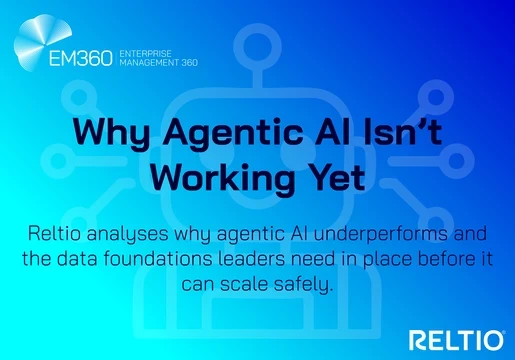Meta CEO Mark Zuckerberg appears to have ditched the Metaverse and is now betting the future of Meta on generative AI.
That’s according to an earnings call with investors today, where the Facebook co-founder said he sees “an opportunity to introduce AI agents to billions of people in ways that will be useful and meaningful,” and would be adding the technology to all of Meta’s social media apps.
“We’re exploring chat experiences in WhatsApp and Messenger, visual creation tools for posts in Facebook and Instagram and ads, and over time video and multi-modal experiences as well,” Zuckerberg said on the earnings call.
“AI is literally going to touch every single one of our products. Once you light up the ability for tens of millions of AI agents acting on their behalf, you’ll have way more businesses that can afford to have people engaging in chat,” he said.
Meta, which owns Instagram, Facebook and WhatsApp, had initially hung back on developing the tech it needs to support AI features with the distraction of the company’s rebrand and Zuckerberg’s fixation on the metaverse.
But today, the CEO said that Meta would be shifting to focus on AI. He told investors the firm was” no longer behind in building AI infrastructure,” while suggesting that generative AI products may be released in the near future.
“I expect that these tools will be valuable for everyone from regular people to creators to businesses,” the CEO said.
“For example, I expect that a lot of interest in AI agents for business messaging and customer support will come once we nail that experience.”

'MetAI'
Zuckerberg’s comments arrive following a surprisingly strong quarter for Meta, who posted $28.10 billion in revenue and up 3 per cent from last year, beating Wall Street’s estimates.
In a statement, The CEO attributed the success of the company to his company’s pivot to AI, which he said is already having a positive impact across Meta’s platforms.
“We had a good quarter and our community continues to grow. Our AI work is driving good results across our apps and business. We’re also becoming more efficient so we can build better products faster and put ourselves in a stronger position to deliver our long-term vision.”
Despite the increase in revenue, Meta's net income remains down by 24 per cent year over year – from $7.47 billion to $5.7 billion.
The tech giant has lost billions of dollars to its metaverse projects over the past year and has been battling a drop in advertising revenue across its social platforms due to macroeconomic tensions and a shift in consumer behaviour with the end of the pandemic.
It has continued its latest round of mass redundancies this month as part of Zuckerberg’s “year of efficiency” following a slump in revenue and a number of failed metaverse projects.
A total of 20,000 staff are expected to be affected by the layoffs, which began last November following reported losses of over $3.6 billion from Meta’s Reality Labs metaverse project in the third quarter of 2022.
For now, Meta’s pivot to AI appears to have prevented further revenue loss. But, given Zuckerberg’s tendency of getting obsessed with expensive technologies, analysts warn that investors need to be wary of the firm’s AI projects.
"Keep an eye on Zuckerberg's newfound love with all things AI," Bernstein analysts warned investors in a research email seen by Business Insider.
“It seems that the year of efficiency is winding down (we made it to April) and a name change to MetAI (our best guess) is now possible."
Another contender in the AI arms race
While Meta released an AI language model called LLaMA to researchers earlier this year, it has yet to debut anything resembling ChatGPT in a way that is widely accessible.
But the technology is likely coming very soon. Meta’s AI research group used 2,048 A100 Nvidia chips for 5 months to train a new suite of language models, AI industry executive Emad Mostaque tweeted on Friday.
It’s not too late for another name change :)
— Peter Tchir (@TFMkts) April 27, 2023
The firm is just one of the many major tech companies that turn their attention to AI since the sudden success of OpenAI’s ChatGPT last November – which has gripped Silicon Valley and started a big-tech AI arms race.
Microsoft has so far invested $11 billion into the research firm as it hones in on integrating the technology into Microsoft products and services.
Meanwhile, Google is launching its own AI research projects after Sundar Pincai issued A “code-red” last year to defend Google’s long-standing dominion on the search market.
More recently, smaller firms, such as including Snapchat and Alibaba have even introduced their own AI chatbots as the technology becomes the next big thing.
Meta may be pivoting to AI like the rest of the industry, but Zuckerberg isn’t giving up on the Metaverse just yet, but rather putting the project on the back burner.
He said the “narrative that has developed that Meta is moving away from the metaverse” is “not accurate,” as evidenced by the planned debut of the newest Quest VR headset later this year.







Comments ( 0 )